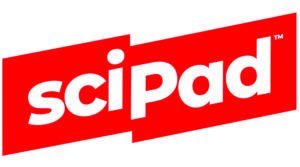

The sciPAD BIG IDEAS Year 7 workbook is an essential resource designed to support students as they begin their journey through secondary science. Aligned with the Australian Curriculum (Version 9.0), this workbook provides a structured and engaging approach to developing core scientific knowledge and inquiry skills.
Students will explore key scientific concepts across biological, physical, chemical, and Earth and space sciences. They will examine the classification and diversity of life, investigate the interactions within ecosystems, and analyse the impact of environmental change. The workbook also introduces fundamental principles of forces and motion, the particulate nature of matter, and techniques for separating mixtures. Students will model the Earth-sun-moon system to understand the causes of tides, seasons, and eclipses.
Each chapter integrates contextual learning with practical activities, critical thinking tasks, and real-world applications, including the integration of First Nations Australians’ perspectives and knowledge systems. Clear explanations, structured exercises, and visual representations support conceptual understanding and scientific literacy.
This workbook equips students with the ability to pose investigable questions, plan and conduct reliable investigations, analyse and interpret data, and communicate findings using appropriate scientific language and formats. It lays a strong foundation for future scientific learning by fostering curiosity, rigour, and respect for evidence-based reasoning.
KEY FEATURES OF THE SCIPAD

Fully Aligned to Version 9.0 of the Australian Curriculum
- Covers all content descriptions and elaborations for Years 7.
- Includes Science Understanding, Science as a Human Endeavour, and Science Inquiry Skills.
- Explicitly linked to achievement standards for easy tracking of progress.
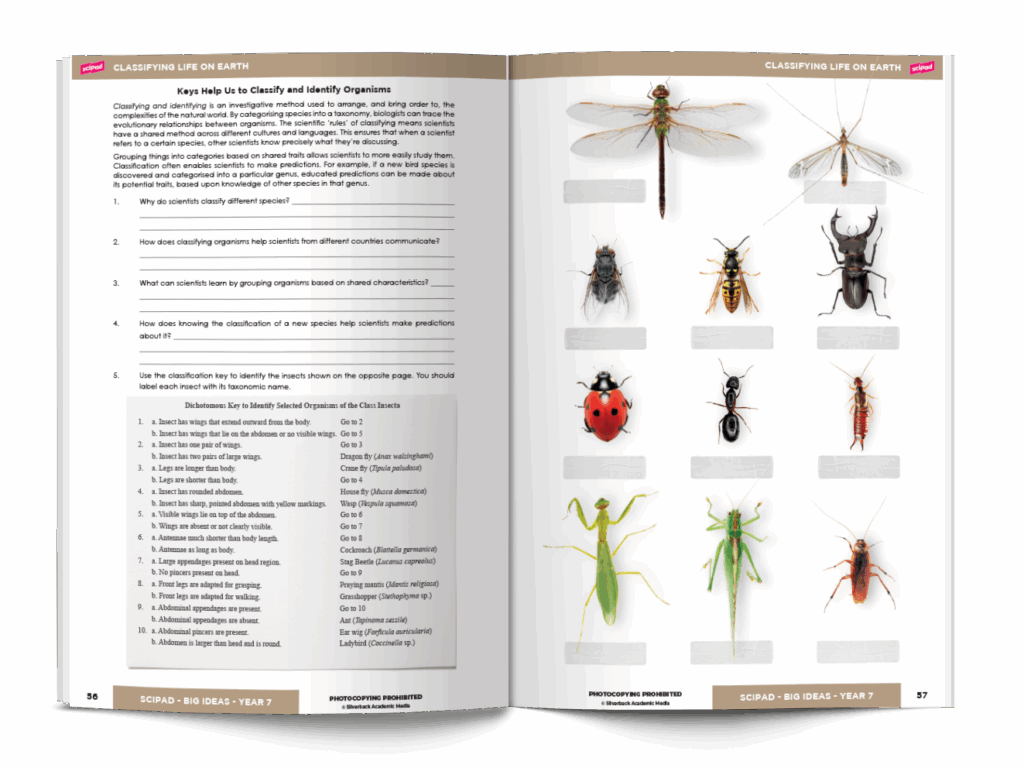
Designed for Australian Classrooms
- Integrates First Nations Australians’ knowledges in contextually relevant ways.
- Uses Australian examples and case studies such as native ecosystems, renewable energy, mining, fire management, and space science.
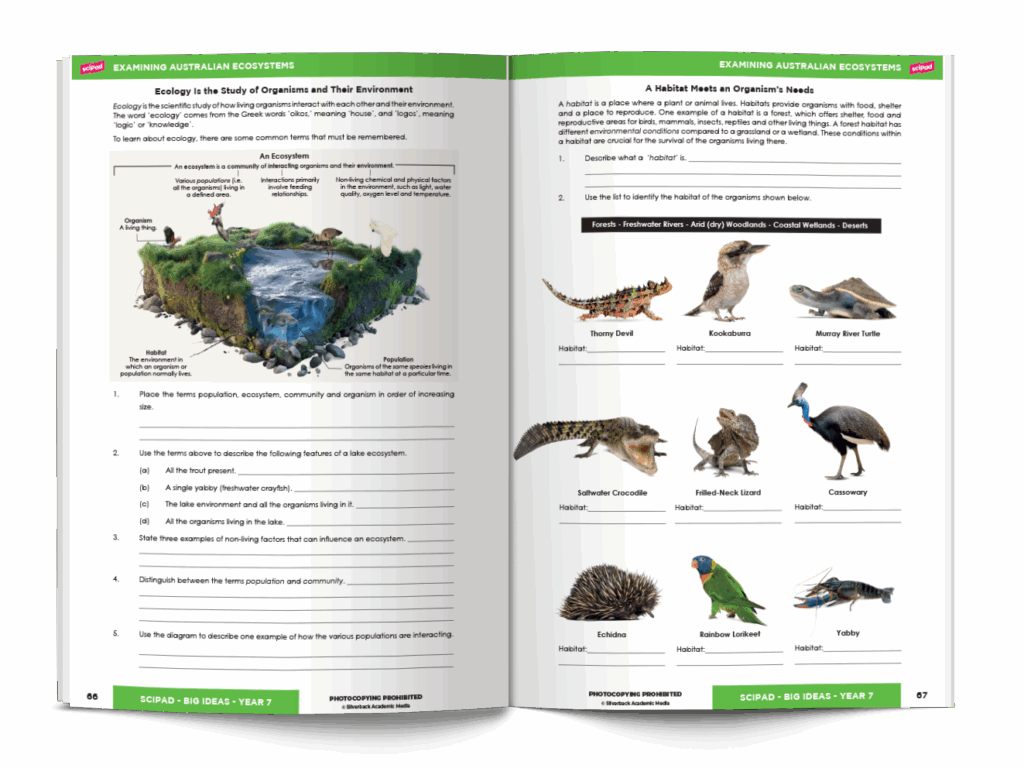
Student-Friendly Organisation
- Clear learning intentions and key words of each topic.
- Key concepts highlighted through diagrams, summaries, and glossary support.
- Encourages independent and self-paced learning with well-sequenced content.
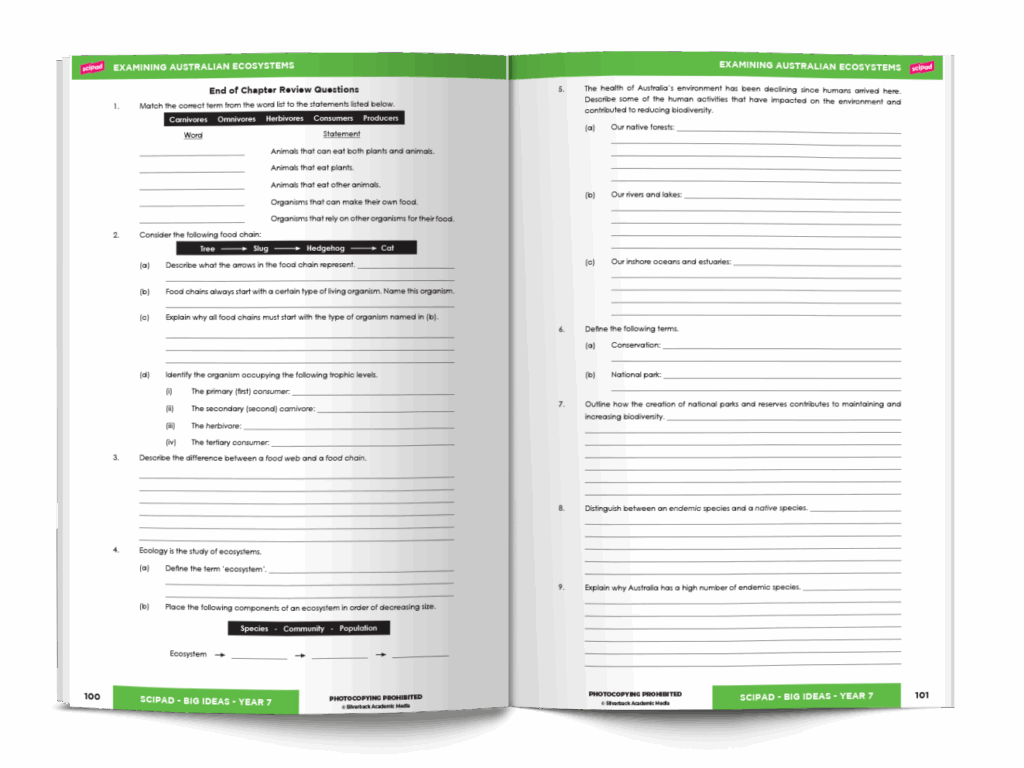
Assessment-Ready Tools
- Includes progress checks and end-of-topic review questions.
- Tasks and questions are aligned to curriculum codes for formative and summative assessment.
- Helps build NAPLAN-style science literacy and analytical skills.
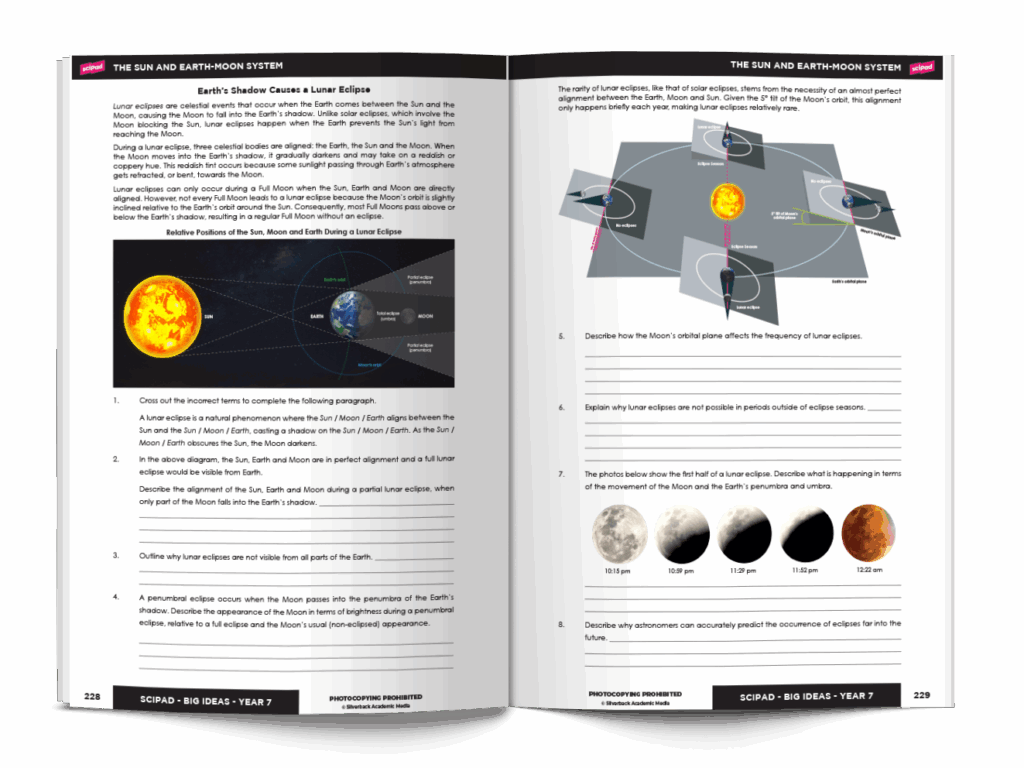
Strong Focus on Inquiry and Critical Thinking
- Provides hands-on and virtual investigations that support model development and hypothesis testing.
- Guides students to consider ethics, cultural protocols, and the role of science in society.
- Develops skills in data collection, analysis, and evidence-based argument.
